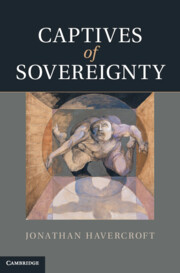Conclusion
authority without supremacy, community with contestation
from Part II
Published online by Cambridge University Press: 07 September 2011
Summary
I would like to conclude by returning to where I began, with Wittgenstein. As I have argued throughout this book, the reason that scholars are captivated by sovereignty is that our theories of politics are often articulated to respond to a perceived threat of skepticism. Skeptical arguments challenge knowledge claims by questioning the validity of the criteria of that knowledge claim. In attacking the validity of a specific knowledge claim, the skeptic hopes to call the validity of all possible knowledge claims into doubt. Skeptical arguments are difficult to respond to, because they challenge the legitimacy of criteria. Criteria are the specifications a person or group establish in order to judge whether something has a particular status. In the case of extreme skepticism, no criteria are sufficient. As we saw in Part I of this book, Hobbes and Spinoza were concerned that there were no ethical, epistemic or religious foundations that could provide a sufficient basis with which to judge the validity of knowledge claims. Their fear was that epistemic, ethical and religious skepticism would lead to moral and social upheaval, as people could not come to consensus about what was true and false or right and wrong.
- Type
- Chapter
- Information
- Captives of Sovereignty , pp. 231 - 242Publisher: Cambridge University PressPrint publication year: 2011



